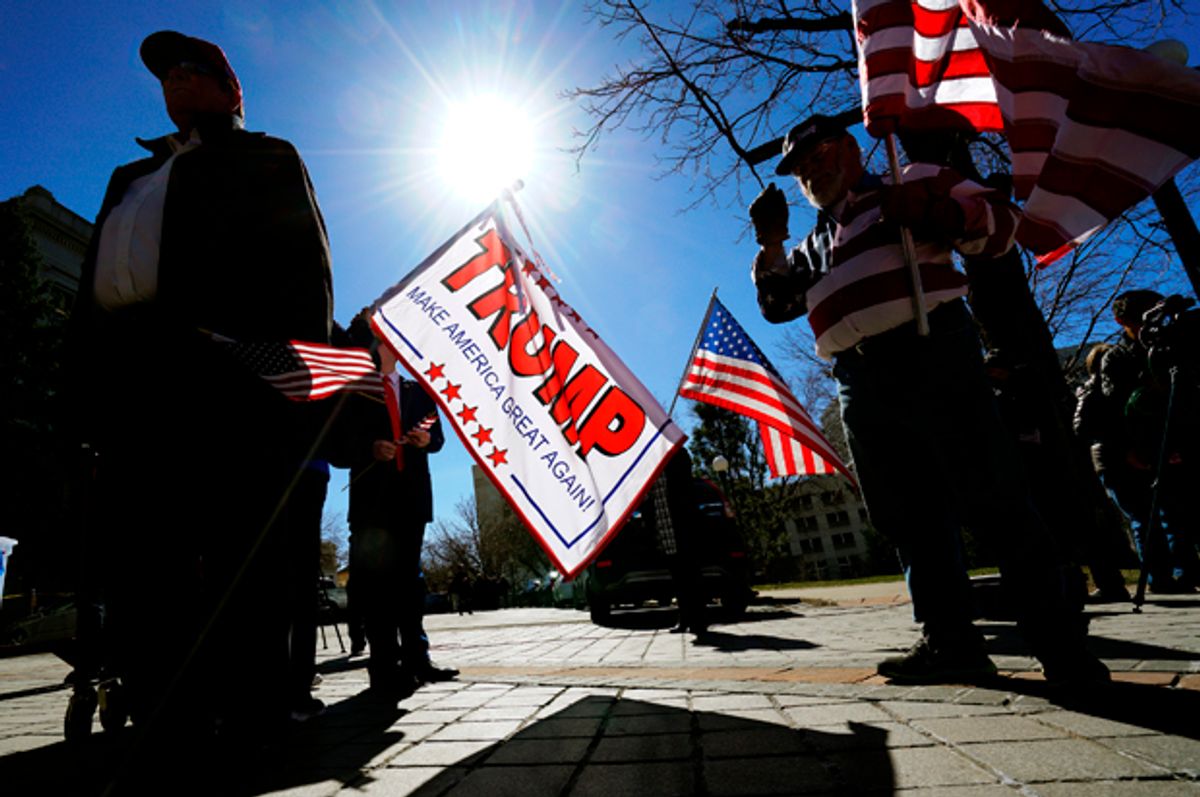Voters are begging President Donald Trump to end his tweeting, and the president's most loyal supporters are beginning to waver.
According to a new Politico/Morning Consult poll, 69 percent of voters said Trump uses Twitter too much and 59 percent said his use of Twitter "is a bad thing." A majority of voters also believe that the president's tweets are a detriment to national security, according to the poll.
[salon_video id="14777406"]
But this is not a partisan issue, because Republicans are growing worried about how frequently Trump uses Twitter as well. "A 53 percent majority of GOP voters say Trump tweets too much — though slightly more Republicans say Trump’s use of Twitter overall is a good thing (41 percent) than a bad thing (37 percent)," according to Politico.
Twitter is not the only thing hindering Trump's presidency, because the president's traditional die-hard supporters are beginning to change their tune, according to the Washington Post. FiveThiryEight's Nate Silver pointed out that there has been "a considerable decline in the number of Americans who strongly approve of Trump, from a peak of around 30 percent in February to just 21 or 22 percent of the electorate now. (The decline in Trump’s strong approval ratings is larger than the overall decline in his approval ratings, in fact.)"
A poll released by Quinnipiac University on Wednesday corroborates Silver's observation, according to the Post. "If you look at the trend in Quinnipiac’s polling since January, strong approval of the president’s job performance has faded in a number of constituencies — including Republicans and whites without college degrees."
Those who once expressed "strong support" for Trump —Republicans, whites without a college degree, white men, 65 and older, white women, Independents and 18- to 34-year-olds — have all seen a steady decline.
"It’s rare that opinions of people flip 180 degrees in politics. For example, when people are changing their minds about who they’ll vote for, there’s often a way-station at 'undecided' before their candidate choice flips. Similarly, people are less likely to go from strong approval of what Trump’s doing to outright rejection of it; instead, their approval would likely fade a bit first," the Post reported.



Shares